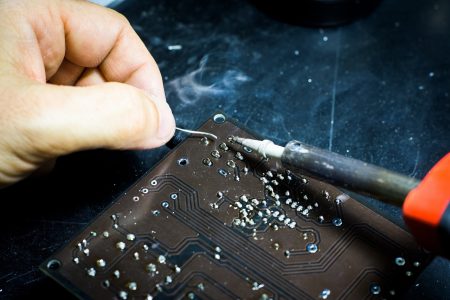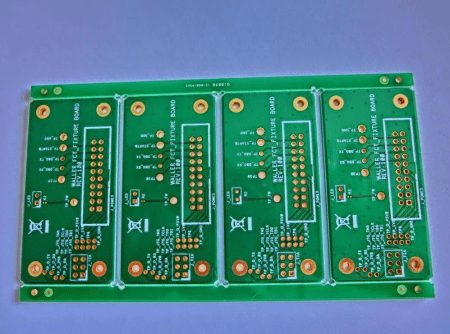- +86-755-23012705
- Building 3, Jinfeng Industrial Park, Fuyong Street, Baoan District, Shenzhen ,China
- [email protected]
Choosing the right solder paste is crucial for ensuring high-quality solder joints and reliable electronic assemblies. With a myriad of options available, selecting the most suitable solder paste for your manufacturing process can be daunting. This guide will walk you through the key factors to consider when making your selection.
The first step in selecting solder paste is to understand your specific soldering process. Different techniques—such as reflow soldering, wave soldering, or manual soldering—have distinct requirements. For example, reflow soldering is commonly used in surface mount technology (SMT) and may require a paste with different properties compared to those needed for wave soldering.
Solder paste is typically composed of a solder alloy and flux. The most common alloys are tin-lead (SnPb) and lead-free options, such as tin-silver-copper (SAC) alloys. If your manufacturing process involves high temperatures or sensitive components, you might prefer lead-free solder paste, which is now a standard in many industries due to environmental regulations.
When selecting an alloy, consider the melting point, thermal fatigue resistance, and mechanical properties. For example, SAC305 (96.5% Sn, 3% Ag, 0.5% Cu) is widely used for its reliability and performance in high-temperature applications.

Flux plays a critical role in solder paste performance. It helps remove oxidation from surfaces and enhances the flow of solder during the heating process. There are three main types of flux: rosin-based, water-soluble, and no-clean.
Rosin-based flux is suitable for hand soldering and rework but can leave residue that requires cleaning.
Water-soluble flux is easy to clean but may be sensitive to humidity and requires thorough cleaning post-soldering.
No-clean flux leaves minimal residue and is ideal for processes where cleaning is not feasible.
The activity level of the flux, categorized as low, medium, or high, indicates its ability to clean surfaces. Choose a flux with an activity level appropriate for your application and substrate materials.
The viscosity of solder paste affects its printability and application method. Thicker pastes are generally better for stencil printing, while thinner pastes may be suited for finer pitch components. Ensure that the viscosity matches your printing equipment and process capabilities.
If you are using a stencil printer, conduct a printability test to evaluate how well the paste adheres to the stencil and releases onto the PCB. This testing phase can prevent potential defects down the line.
Solder paste has a finite shelf life, which can vary significantly between brands and formulations. Check the manufacturer’s specifications for storage conditions, including temperature and humidity, to ensure optimal performance. Proper storage can extend the paste’s life and maintain its properties.

Compatibility with components and PCB materials is essential for preventing issues such as delamination or component damage during soldering. Conduct thorough tests to ensure that the chosen solder paste works well with your specific components, particularly if you’re using sensitive or high-value parts.
Finally, consider the reputation of the solder paste manufacturer. Established brands often have a wealth of resources, including technical support, documentation, and user reviews. Investing in a reputable product can provide peace of mind and support in case issues arise during the manufacturing process.

Selecting the right solder paste is a multifaceted decision that directly impacts the quality and reliability of your electronic assemblies. By understanding your soldering process, evaluating alloy compositions, assessing flux types, and testing for compatibility, you can make an informed choice that aligns with your manufacturing needs. Don’t hesitate to conduct trials and seek expert advice to ensure the success of your assembly process. With the right solder paste, you can achieve optimal results and maintain high standards in your production line.
Take Your Projects to New Heights with XPCB Limited
XPCB Limited offers top-notch PCB manufacturing, quick-turnaround prototyping, and turnkey PCBA services designed to make your projects shine. Count on us to bring your ideas to life with efficiency and quality. Your success matters to us, and we’re here to make your innovation journey smooth and rewarding.






XPCB Limited is a premium PCB & PCBA manufacturer based in China.
We specialize in multilayer flexible circuits, rigid-flex PCB, HDI PCB, and Rogers PCB.
Quick-turn PCB prototyping is our specialty. Demanding project is our advantage.
Tel : +86-136-3163-3671
Fax : +86-755-2301 2705
Email : [email protected]
© 2024 - XPCB Limited All Right Reserve
